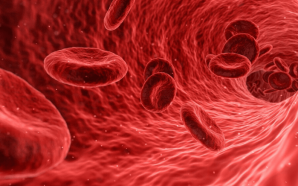Postpartum depression is a medical condition that mainly exists in women and has a very low frequency of occurrence in men. This is a clinical depression that mainly occurs after childbirth. The condition mainly exhibits emotional symptoms in the victims. It mainly begins in the initial months after a woman has given birth (usually it occurs after 6 months from childbirth).
In women who may be under emotional pressure, the condition can occur as early as 4 weeks after childbirth. The condition may continue for a very long time, even for a year, especially if not given required medical attention. Medical practitioners attribute the disease to be the result of a lack of vitamins in the mother’s diet or because of an imbalance in hormones.
Different Types of Postpartum Depression
The signs and symptoms of this condition can be divided into three subcategories. These subcategories include:
Postpartum blues
This category is usually very short lived and may therefore not require any medical attention. The category is also referred to as baby blues. In this type of postpartum, the effects of depression are usually mild and as such are suppressed with dietary changes. However, if the symptoms in this category are not well taken care of, it is highly possible that the symptoms will worsen and cause other medical conditions such as mental depression.
Postpartum depression
This type is longer lasting, at least in comparison with postpartum blues. The symptoms of the condition are clearly evident in the patient. The extent of depression in this stage is so great that it even affects the mother’s mind. Symptoms of the condition in this stage require professional handling in order for them to be successfully treated. Changes in diet may also be included in order to be able to boost the efficiency of the treatment options in use.
Postpartum psychosis
This is the final category of postpartum depression. This is the most severe and aggressive stage in the medical condition. In this category, the mother’s mental state is greatly affected and she usually experiences stress in most circumstances. The depression also greatly affects her body’s health, appetite and even the body’s ability to function normally. This type requires professional counseling by a qualified psychiatric professional. This is the longest lasting category and can stretch to a little over 6-9 months.
Signs of postpartum depression include the following:
– Lack of sleep/ inability to sleep
– Loss of appetite
– Lack of concern of the baby’s welfare
– The inability to bond with the baby and the immediate family
– Anger and hostility, especially towards the baby and your family
– Loss of concentration/loss of memory
– Frequent mood swings with extreme highs and lows
– Emotional numbness towards family and your baby
– Recurrent suicidal thoughts, which may include several suicide attempts
– Intrusive behaviors, especially towards baby and family
– Extreme fatigue/lethargy
– Low self esteem coupled with high levels of doubt and hopelessness
– Loss of weight due to the impact of stress and poor eating habits
Upon identification of these signs in a mother who just gave birth, it is advisable to get her to some psychiatric sessions. This helps in ensuring that the mother’s depression is taken care of before it spirals out of control.
Sourced from: dugout
Photo: Thinkstock/JackF








